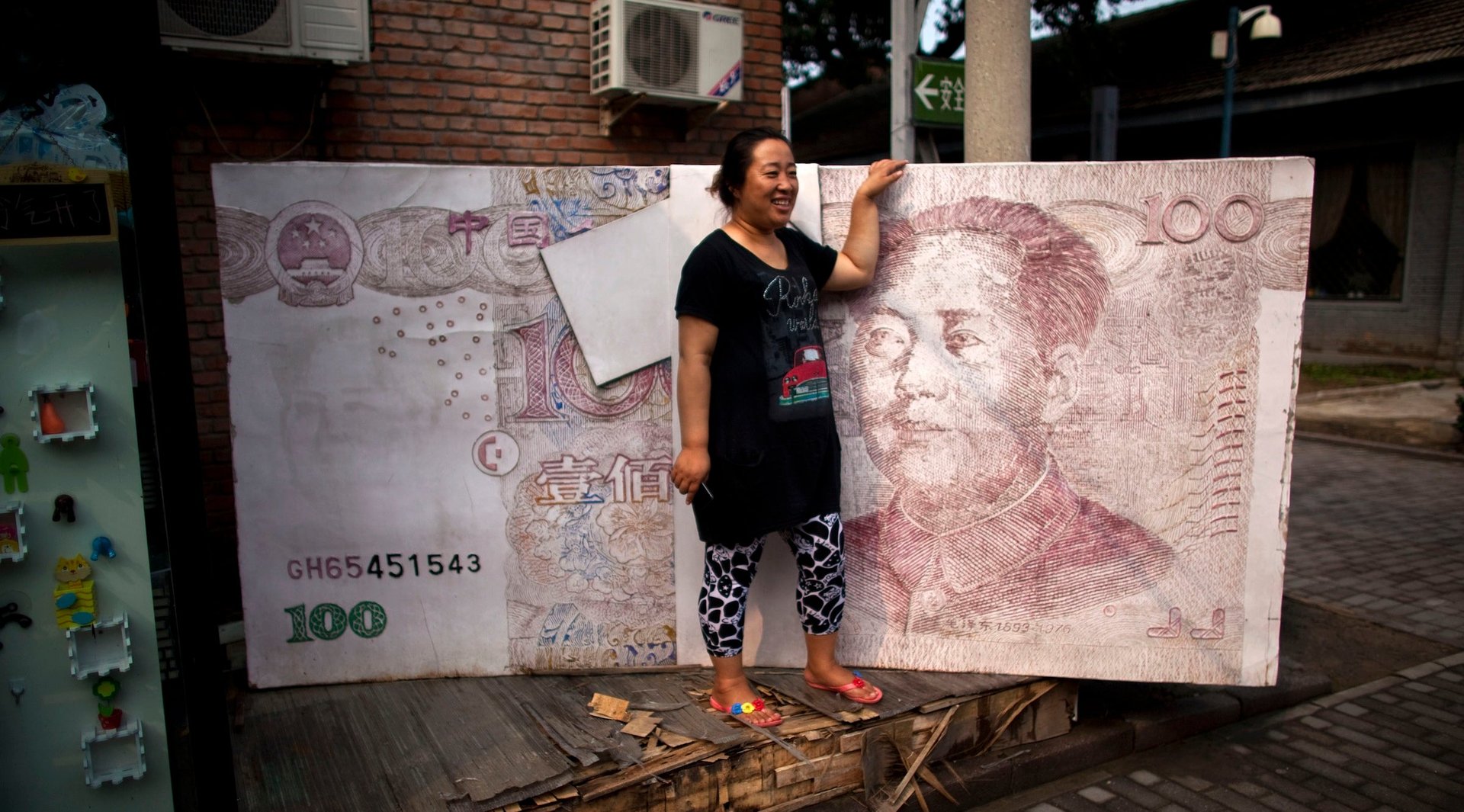A rural banking crisis is brewing in China
On Sunday (July 10), angry comments flooded the Weibo page of the US embassy in China, urging Washington to pay attention to a banking scandal. The comments came from depositors whose funds have been frozen in village banks, some of which are indirectly controlled by a city-level government in Henan, a central Chinese province. The same day, protests staged by nearly 1,000 depositors in Zhengzhou, the capital of Henan, were crushed by authorities.


On Sunday (July 10), angry comments flooded the Weibo page of the US embassy in China, urging Washington to pay attention to a banking scandal. The comments came from depositors whose funds have been frozen in village banks, some of which are indirectly controlled by a city-level government in Henan, a central Chinese province. The same day, protests staged by nearly 1,000 depositors in Zhengzhou, the capital of Henan, were crushed by authorities.
Despite the crackdown, Henan authorities agreed the following day to repay deposits totaling 50,000 yuan ($7,434) or less. Frozen deposits exceeding that amount will also be repaid eventually, the authorities said, although they gave no timeline for this process.
This solution may be far from enough to contain a spreading banking crisis. According to affected depositors, the total funds frozen could amount to tens of billions of yuan from tens of thousands of citizens. To cover all these deposits will strain already tight local government revenues, which have shrunk due to declining land sales. More worryingly, the incident showed the mounting pressure that China’s small and regional lenders face in a slowing economy.
Why are China’s rural banks in trouble?
The banking crisis started in April, when depositors were unable to access their money in four rural banks in Henan, an important agricultural base. Since then, many depositors have protested at local banks and government offices. Their grievances drew national attention last month, when some Henan officials were reprimanded by Beijing for abusing a government covid app to stop people from demanding their money back.
“The most apparent problem is rural banks have poorer governance,” said Gary Ng, a Hong Kong-based economist at the French investment bank Natixis. “The consequences may be amplified with poorer profitability and solvency.”
So far, local police has pointed to a “criminal gang” that allegedly controls companies including the Henan New Fortune Group, a shareholder in the four involved banks. The authorities said the gang illegally transferred funds through means such as fictitious loans.
The controversy could embarrass Beijing, which is preparing for a key Chinese Communist Party meeting around October. During China’s previous financial scandals, the victims themselves were often blamed for chasing unrealistically high returns. But the Henan crisis could damage citizens’ faith in authorities far more.
China’s small lenders are under pressure
The Henan incident could be only the beginning of a much bigger crisis brewing among China’s small lenders.
China’s 1,600 or so village banks, accounting for a third of all financial institutions in the banking sector, are facing greater pressure amid slowing growth. The major clients of small banks tend to be in sectors such as retail and farming, which have been hit particularly hard by China’s zero-covid strategy. As a result, the non-performing loan ratios at village banks rose from 3.66% in 2018 to 4% in 2020, compared with only 1% for big state-owned banks in 2020, according to Yicai, a financial media outlet.
Another problem is the weak corporate governance at village banks. They have lower transparency and quality thresholds for shareholders, which could trigger management chaos. Many regional banks also have exposure to the country’s rapidly cooling housing market, in which big developers like Evergrande have defaulted on offshore bonds and look likely to default on onshore ones.
Despite these difficulties, Natixis’ Ng said, authorities are unlikely to let these banks fail, given the importance of the sector. “Rural banks may face tighter regulations and further consolidation within the sector with the help of larger banks or other state-owned capital,” Ng said. “Banks are different from real-estate developers, and China cannot afford to see weaker confidence in the financial system.”